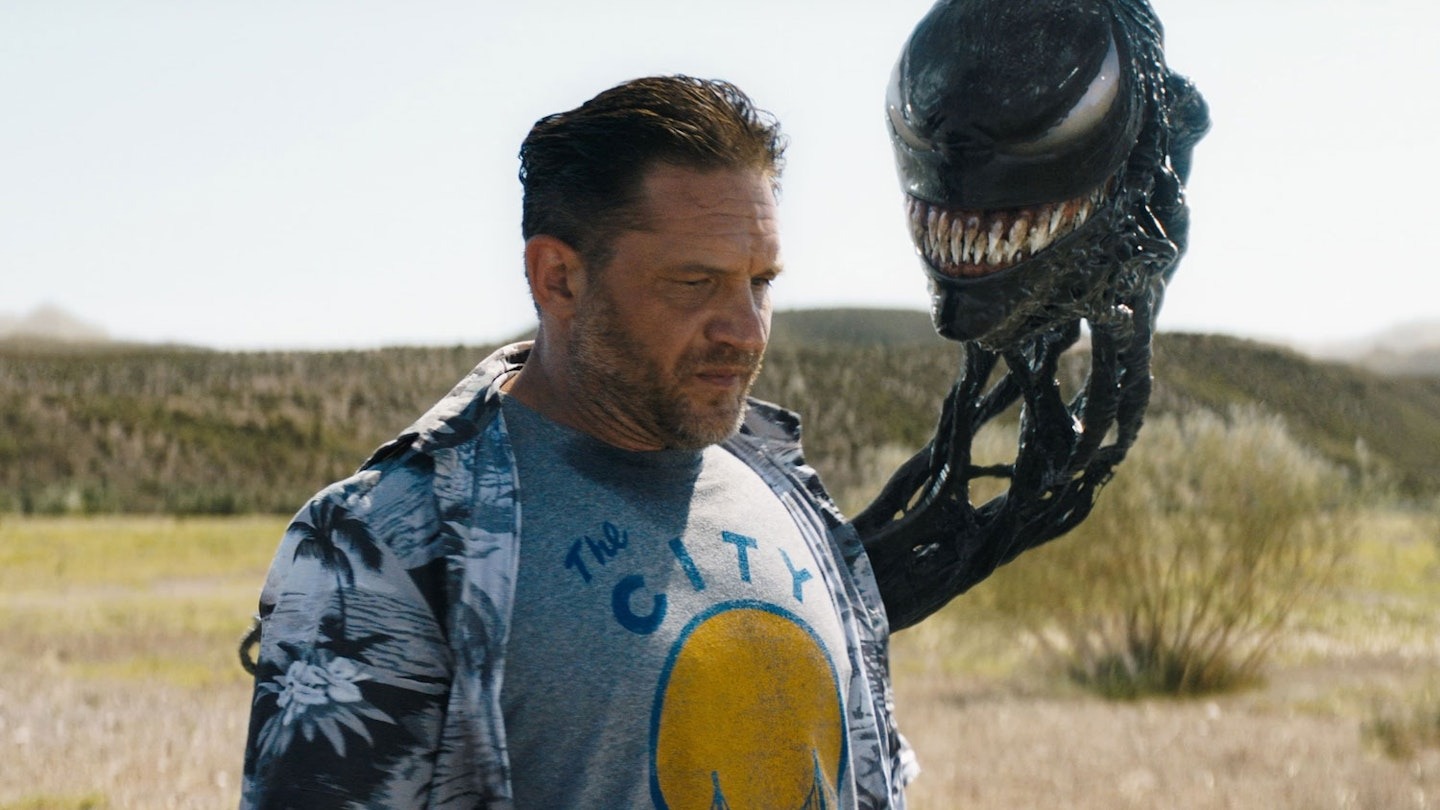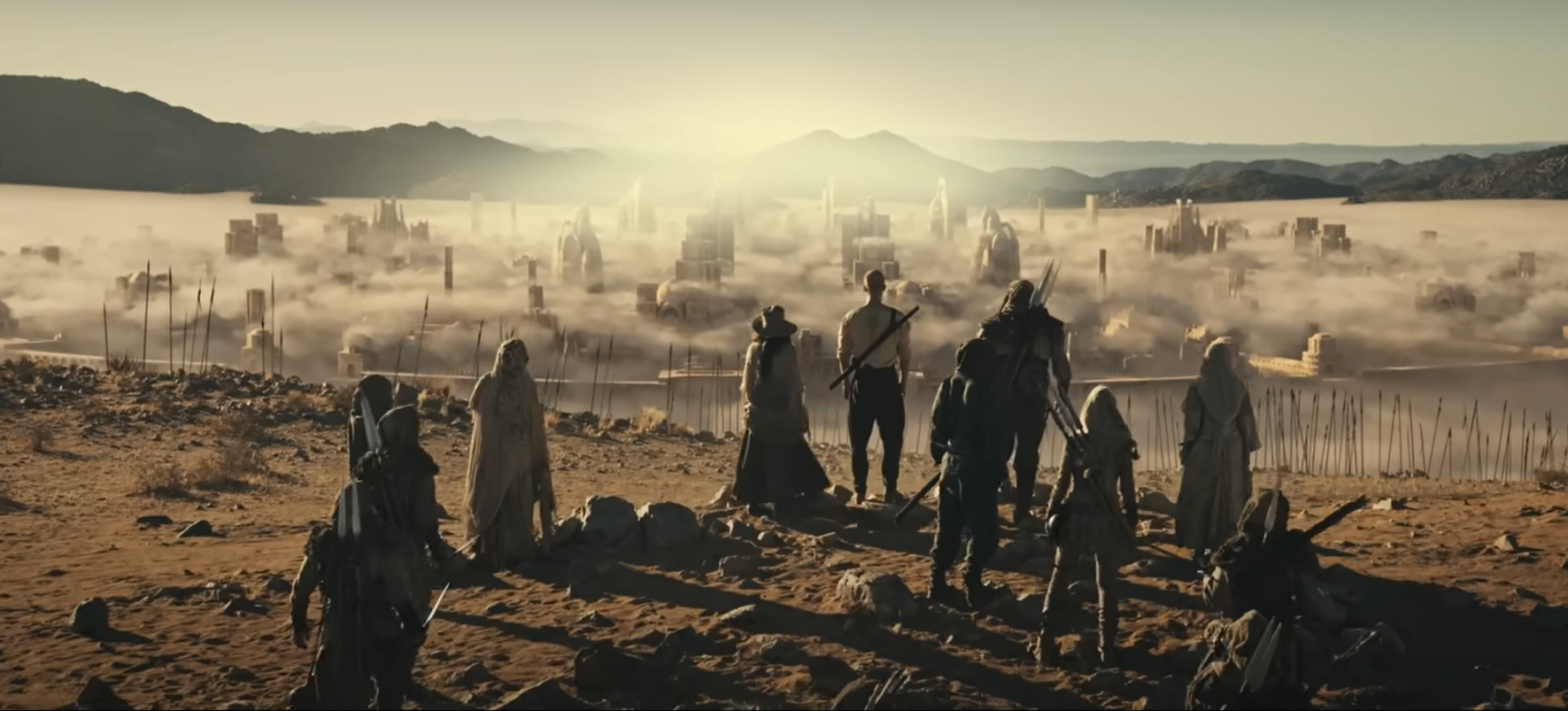
We need to treat our veterans well after coming home from wars overseas.
One of the biggest battlegrounds for many veterans will be the aftermath of war with their post-military lives. Thank You For Your Service addresses the harsh reality of post-traumatic stress disorder (PTSD) despite the sacrifices these veterans gave to our country.
The film stars Miles Teller, Haley Bennett, Beulah Koale, Joe Cole and Amy Schumer. The film is written and directed by Jason Hall.
LRM had an exclusive interview earlier this month with director Jason Hall. We discussed the long road to adapting the book to screen and taking the reins of directing from Steven Spielberg. He also talked about the usage of veterans and making the film to most truthful and realistic as possible.
Thank You For Your Service is playing nationwide in theaters today.
Read our interview transcript below.
LRM: How did all of this started for you to be on board for Thank You For Your Service? You wrote the story based off the book, right?
Jason Hall: I did. I was working on American Sniper with Steven Spielberg, who was going to direct this [Thank You For Your Service] before I came on. He presented me this book and told me he wanted to do this story. He wanted to tell the stories of the soldiers coming home. He’s a big fan of a movie called The Best Years Of Our Lives directed by William Wyler after World War II. He shared that movie with the book. I really responded to it.
I felt like we can do what they did there in The Best Years Of Our Lives. But, I saw the opportunity to tell the story of the after war. It’s really to have a war film that takes place at home entirely in the hearts and heads of these returning soldiers.
LRM: I understand that book has so many characters. You had to really, really narrow it down. How did you manage to pull that off?
Jason Hall: It’s about telling the stories you’re telling. It’s what the theme of it is. It’s what it is about. Now who’s story services that and what element of the stories serves that. I had to find on what conflicts would be in service of that story.
How can we tell the stories of all veterans through the eyes of these three guys? How can we hit a universal core by telling a very, very personal stories of these veterans? That was the goal to paint almost a journalistic portrait of these returning guys and put the audiences in their seat. It puts everyone as a fly on the wall in their houses and homes. It’s really to explore this story from within.
LRM: Now I haven’t read the book myself. Was Adam Schumann the primary focus of the book?
Jason Hall: Adam is the primary focus in the book. He has a little more page time than everyone else. There are a lot of characters in the book. It’s a sprawling poetic masterwork from David Finkel.
LRM: Did you have anything you had to fictionalize for the flow of the movie?
Jason Hall: There were a couple of smaller characters I had to combine to unite some of the stories. I had to put some people in the same room at the same time when maybe they weren’t. You’re doing things in service of the film is about. It’s how to service the story in the best way possible.
LRM: What are some of the characters you had to combine? For example?
Jason Hall: Well, if you hadn’t read the book then it’s hard to get into it. You may not recognize it. One instance, I had to put Adam and Tausolo [Aieti] in a hallway at the same time. They were crossing rather than being together that day.
For me, the idea of adapting a piece of work like this, especially a non-fiction project, is that everyone gets hung up on what was true and what wasn’t true. The artistry of doing that is what was wasn’t true and not on how much was true. If it wasn’t in the book, then why did you need me to come in and write it? You can just hit tab and return—it’ll just format itself. Here it is! Here’s exactly the book in the shape of the film.
The problem with that is that you don’t have the internal life of these characters. You don’t have the pros that are in the book. The challenge of adapting is getting the meaning of the book and everything you’ll learn by what the author tells you. It’s over the inside of these characters and how to bring them to life with dialogue and action. It’s about creating conflict and drama in between them. You don’t have the inside of an author.
LRM: Besides the book. Did you have to go above and beyond with more research?
Jason Hall: The research in the book is just fantastic. You know exactly what happens with these guys when they came home. There was a really good feeling of their internal life and what was going on with them.
I had to reach out to all of them. I had to get a sense on who they were, how they talked, and how they spoke. It was shocking to me that I wanted to hear on how Emory speak. What was his accent was like? What was his voice was like after having a traumatic brain injury? He had several inches of his brain removed. Will he ever learn to speak again? What was the pace was like? How hard was he to understand?
There was a time when the book was finished, published and came out. Where are those characters had gone now? How did they progressed? How can we encapsulate all of that into the film?
You are really trying to get an essence on who they are. The reporting in the book is so specific. How do they sound? Is there physiology of them I can get? How can I scrape some more of the psychic sense of this person and capture it for the film?
LRM: Were they pretty receptive when you pitched it to them that their story was going to be put up on the silver screen?
Jason Hall: Not really. Not at first. It was a big process to win them over. That’s part of the [challenge] you had to partake in adapting real material and real people. You become responsible to them and to their story. They are going to be a part of this. You can either keep them out or bring them in. It was a decision to bring them in. It took a while to get them on board with that. But, once they did, it was very rewarding.
You’ll never going to get this much honesty and this much truth as we captured it in this film unless you had those people involved. You will need them to be part of the fabric of this film.
LRM: Did you feel like you had this extra added pressure to get this right?
Jason Hall: Added pressure, yes. You already have the whole military community just waiting. The military community can’t wait to destroy anything that’s about them. Ninety percent of the films about the military community—they’ll chew it up and spit out. You got that pressure already.
For these people coming on, there were so added pressure there. It was nothing compared to the entire military community who is at the door. It’s like a wolf on your doorstep.
I looked at them as an asset. They are all an asset. I had the experience of doing American Sniper. I knew on how that process was going to go. I felt like the more that I can sow them into this project and the more veterans I can get involved—the more closer truther that this could be to have them around. I had them comment on what we were doing. Even it was the way on how he was standing, a belt, the medals, the way he speaks or driving a truck. Anything they had to say—I wanted them to say it.
We had veterans around all the time as we were filming the movie. We filled the VA with veterans. Those were all the guys who served. They waited in the VA hospital before that. They know on what it was like to wait in the hospital. I tried to put as many veterans into the cast and crew. We surrounded ourselves as much as we could.
LRM: Literally, a lot of veterans in the support cast. That’s great.
Jason Hall: Yeah.
LRM: When and how did you came to the decision to direct this movie? This is your directorial debut, right?
Jason Hall: It is. It was me pitching myself when Steven decided not to direct the movie. There was a lot of effort in getting the script right. I had to sell myself to him and to the studio. It was selling my vision to them and letting them on what I wanted to do with it.
LRM: What do you suppose was the greatest challenge? It obviously had to be directing this movie, right?
Jason Hall: No, the greatest challenge for me was the script. I found the script to be a greater challenge emotionally. It was more taxing than directing. I enjoyed being around people. I enjoyed interaction. I loved directing these actors. The casting was challenging. But, getting this script right was very, very tough.
LRM: Let’s talk about your cast. Miles Teller is the biggest name you brought on to this film. You circled yourself with a really well-rounded cast for yourself. Talk about them.
Jason Hall: I found this kid named Beulah Koale out of New Zealand. He hadn’t done much before. I found him to be stunning and looked like to be the stand-in for the guy he is playing. He comes in with so much courage and warmth in his portrayal.
Haley Bennett, I felt like this is the best thing she has done. She is a caregiver here for a veteran who is coming home. Her compassion, the fight in her, is tremendous.
Joe Cole is just awesome. He is actually British. You wouldn’t know it if you watched him in this film. We didn’t allow him to speak British on set or else he’ll have to do pushups. Scott Hayes is just amazing as Michael Emory. He went to live in a wheelchair for several weeks in the VA.
LRM: And of course, Miles Teller…..
Jason Hall: Of course, Miles Teller. I think he’s doing the best coursework of his career with this film. This is subtle and internal as we’ve seen him. He was tasked or rather I tasked them all in creating a war movie in their heads. It all comes out of his eyes and his silences. You can feel the guns of war going off inside his head.
LRM: How did you direct them to get into that mode of PTSD in their heads?
Jason Hall: Well, different actors work differently. They had their own method. For Miles, he suffered his own trauma by the way of a car accident he was in and his friend died. I asked him to use that and explore that. For him, it’s not only to acknowledge that, but to live in that story. I had trauma in my own life. It’s easy to tell trauma without connecting to it. I urged him to connect to that. It was over the very bad day he had and urged him to spotlight it into his performance.
For Beulah, it was his memory. We worked a lot on his sense memory. We used rotting meat to invoke a smell. We also had it around when we were working on that memory. It’s soliciting this memory through the smell of the rotten meat. We built the fabric of these moments in 3D for this kid. He did a lot of memory work you see on screen and to have not to reach for any of that stuff. It was all there living inside of him in those moments.
We really tried to recreate the moments of trauma in each of them. They had to relive it. They had to share it with each other. They had to find a way to that language of the moment living inside of them with every breathe in front of the camera.
LRM: Terrific. Thank you very much. I appreciate this conversation.
Jason Hall: Thank you.
Thank You For Your Service is playing nationwide in theaters today.
Source: Exclusive to LRM

 FOR FANBOYS, BY FANBOYS
Have you checked out LRM Online’s official podcasts and videos on The Genreverse Podcast Network? Available on YouTube and all your favorite podcast apps, This multimedia empire includes The Daily CoG, Breaking Geek Radio: The Podcast, GeekScholars Movie News, Anime-Versal Review Podcast, and our Star Wars dedicated podcast The Cantina. Check it out by listening on all your favorite podcast apps, or watching on YouTube!
Subscribe on: Apple Podcasts | Spotify | SoundCloud | Stitcher | Google Play
FOR FANBOYS, BY FANBOYS
Have you checked out LRM Online’s official podcasts and videos on The Genreverse Podcast Network? Available on YouTube and all your favorite podcast apps, This multimedia empire includes The Daily CoG, Breaking Geek Radio: The Podcast, GeekScholars Movie News, Anime-Versal Review Podcast, and our Star Wars dedicated podcast The Cantina. Check it out by listening on all your favorite podcast apps, or watching on YouTube!
Subscribe on: Apple Podcasts | Spotify | SoundCloud | Stitcher | Google Play



